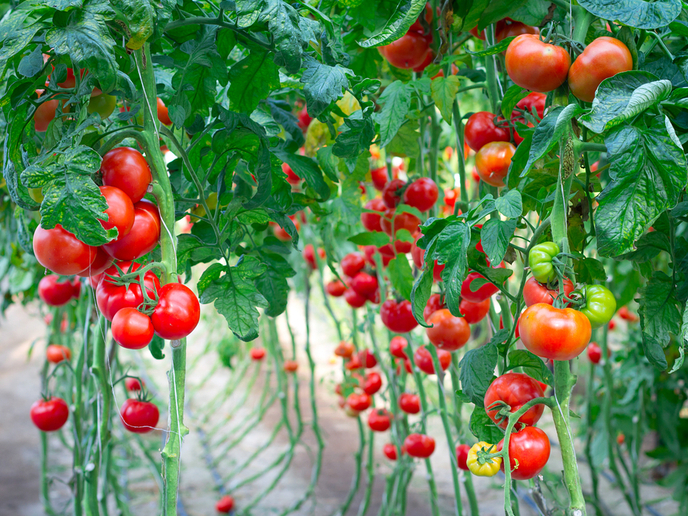Making tomatoes more tolerant to climate change
The tomato is one of the EU’s staple crops, cultivated all over Europe in open and protected fields and in greenhouses. Tomato farmers face combined water and nutrient stress in their crops, and solutions are needed to safeguard yields and preserve the environment. The EU-funded TomRes project tested and optimised sustainable crop management strategies such as legume intercropping, precision fertilisation and irrigation techniques, manipulation of symbiotic microorganisms, and the use of rootstocks more suited to water and nutrient uptake from the soil. Project partners implemented a selection pipeline to identify tomato genotypes most resilient to combined stress (drought and low nutrients). “Starting from about 10 000 available accessions, over 200 were screened in the open field, amongst which 80 were Mediterranean landraces with long shelf life, to select a 43-accession TomRes collection of lines endowed with superior tolerance to combined stress,” explains Andrea Schubert, project coordinator.
Making tomatoes more resilient and better performing
TomRes contributed basic science advancements such as more than 20 new alleles (and lines carrying them) that can help steer tomato performance under stress and be used in marker-assisted selection for resilience. The project provided new insights into the role of two pivotal phytohormones, strigolactones and brassinosteroids, in plant resilience, development and environmental memory. Using advanced technology phenotyping, TomRes discovered new root-associated traits relevant for resilience to combined stress. The new traits are related to root architecture and physiology and are associated with beneficial microbes. “We were able to optimise management practices (variable rate irrigation and fertilisation, resilient rootstocks, biostimulants, green manure and rotations) and select combinations thereof to achieve optimal resilience to combined stress in tomatoes,” says Schubert. The selected tomato lines and resilience traits represent an accessible source for tomato breeders interested in providing resilient genotypes to farmers. The optimised management techniques have proven to reach the goal set in the project of reducing water and fertiliser needs. TomRes now provides a solid foundation for next-generation tomato cultivation that is more environmentally and economically sustainable.
Applying project concepts to further research
Project partners provided the required reporting and are now active in animating a research scene where, with the help of EU and national funding, the TomRes concepts may be further improved and implemented, in both tomato and other crops. An example is the PRIMA-funded VEG-ADAPT project, which transfers TomRes concepts to the Mediterranean area and to other crops. Farmers and industry participating in the network are setting the foundations for commercial exploitation of the project results of their interest. The project profited greatly from a Stakeholder Board, established to provide advice and feedback throughout the project and contributing to TomRes’s multi-actor approach. Dissemination to scientists, farmers and the general public proved intense and was not discontinued during the COVID-19 pandemic, during which an online summer school and two workshops were held. Surveys on consumer acceptance of sustainable tomatoes have been successful in spreading the project’s concepts and gauging society’s interest in novel, more eco-friendly and sustainable cropping systems.
Keywords
TomRes, tomatoes, tomato cultivation, crop management, plant resilience



